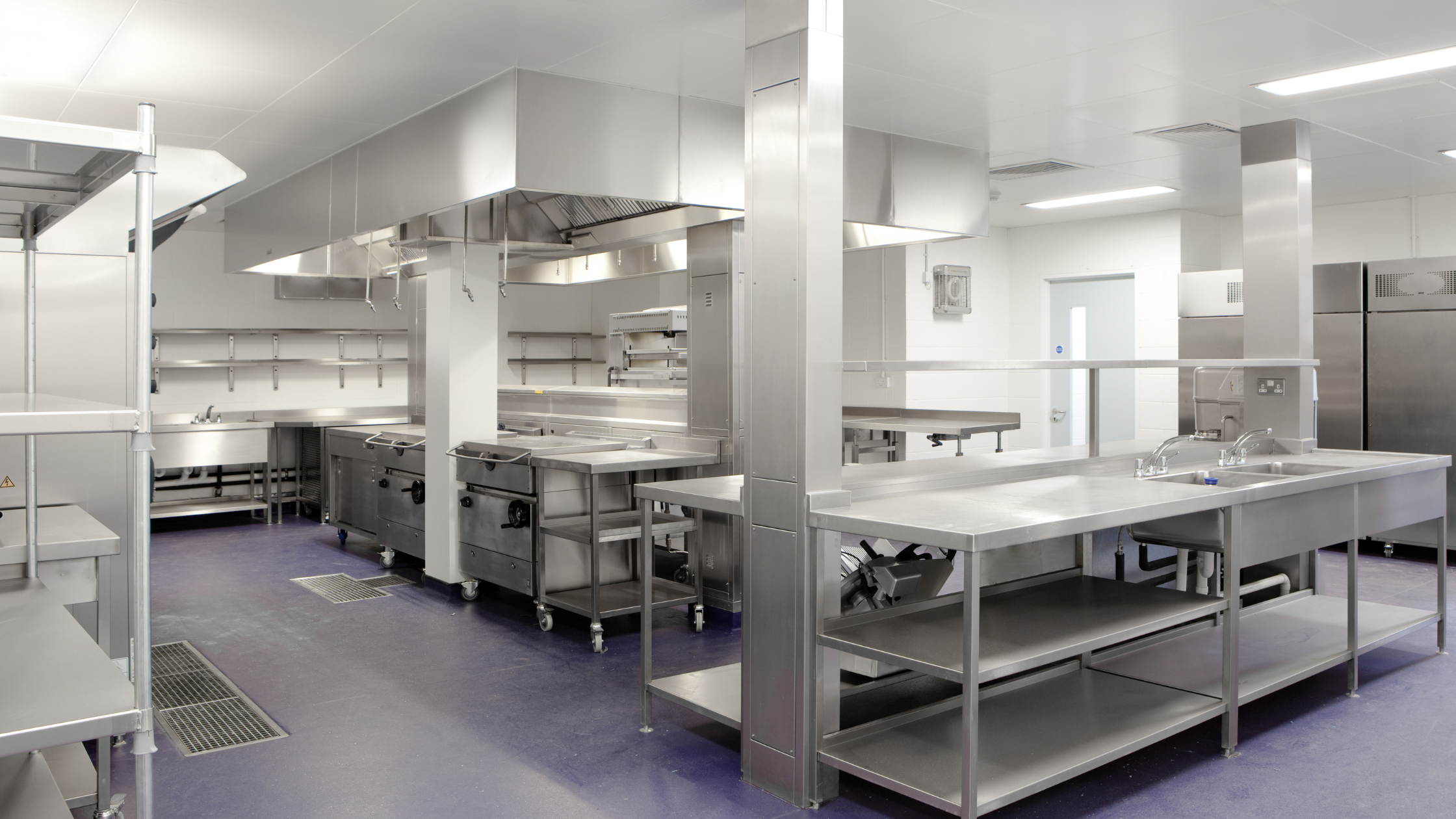
Commercial Kitchen Equipment: How to Maximize Efficiency and Minimize Costs
Introduction
In the fast-paced world of commercial kitchens, efficiency and cost-effectiveness are key factors for success. Utilizing the right commercial kitchen equipment can significantly impact your bottom line while streamlining operations. This article will provide valuable insights into essential commercial kitchen equipment, maintenance and care tips, as well as choosing the right equipment for your business. By implementing these strategies, you can maximize efficiency and minimize costs in your commercial kitchen.
Essential Commercial Kitchen Equipment
The Importance of High-Quality Appliances
Investing in high-quality commercial kitchen equipment is crucial for maximizing efficiency and minimizing costs. While it may be tempting to opt for cheaper alternatives, low-quality appliances often result in frequent breakdowns, increased energy consumption, and compromised food quality. By choosing reputable brands and durable equipment, you can ensure long-term reliability and reduced maintenance expenses.
Cooking Equipment: Stoves and Ovens
Stoves and ovens are the heart of any commercial kitchen. Investing in efficient cooking equipment can greatly improve productivity while reducing energy costs. Look for features such as quick heat-up times, precise temperature control, and energy-efficient designs. Gas stoves are known for their rapid response time, while electric ovens offer even heat distribution.
Refrigeration Units: Coolers and Freezers
Proper storage is essential in a commercial kitchen to maintain food safety and minimize waste. Investing in reliable refrigeration units can prevent spoilage, extend the shelf life of ingredients, and reduce food costs. Consider factors like energy efficiency, storage capacity, temperature control options, and ease of maintenance when choosing coolers and freezers.
Food Preparation Equipment: Mixers and Slicers
Efficient food preparation is key to maximizing productivity in a busy commercial kitchen. Investing in mixers with variable speed controls can streamline tasks like dough mixing or cake batter preparation. Slicers with adjustable thickness settings can ensure consistent and precise cuts, reducing food waste. Choose equipment that is easy to clean and maintain for optimal efficiency.
Dishwashing Equipment: Commercial Dishwashers
Maintaining cleanliness and hygiene in a commercial kitchen is crucial for food safety. Investing in a high-quality commercial dishwasher can save time, water, and energy while ensuring thorough cleaning. Look for features like multiple wash cycles, energy-saving modes, and efficient water usage to minimize costs.
Maintenance and Care of Commercial Kitchen Equipment
Regular Cleaning and Inspection
Regular cleaning and inspection of your commercial kitchen equipment is vital for both performance and longevity. Develop a cleaning schedule that includes daily, weekly, and monthly tasks to prevent the buildup of grease, debris, or mineral deposits. Additionally, inspect equipment regularly for signs of wear or damage to address potential issues before they escalate.
Proper Handling and Usage
Train your staff on proper handling and usage techniques for each piece of equipment. Improper usage can lead to premature wear, breakdowns, or accidents. Provide clear instructions on temperature settings, loading capacities, and safety protocols. By ensuring equipment is used correctly, you can extend its lifespan while minimizing repair costs.
Timely Repairs and Maintenance
Address any equipment issues promptly to prevent further damage or downtime. Keep a record of maintenance schedules for each piece of commercial kitchen equipment to ensure timely inspections, lubrication, filter replacements, or calibration. Partner with reputable service providers who specialize in commercial kitchen equipment repairs to avoid unnecessary expenses.
Energy Efficiency Measures
Implementing energy-saving measures not only reduces costs but also minimizes environmental impact. Optimize your commercial kitchen's energy efficiency by investing in energy-efficient appliances with ENERGY STAR ratings. Additionally, consider installing timers or motion sensors on lighting fixtures and using low-flow faucets to conserve water.
Staff Training Programs
Well-trained staff can play a significant role in maximizing efficiency while minimizing costs in a commercial kitchen. Offer regular training programs to educate your employees on proper equipment usage, cleaning techniques, and safety protocols. Encourage open communication between staff members to address any concerns or suggestions for improvement.
Inventory Management Systems
Implementing an efficient inventory management system can help streamline operations and reduce Brayco New Zealand waste. Utilize technology to track ingredient usage, monitor stock levels, and automate reordering processes. This ensures that you only purchase what is necessary, minimizing waste and optimizing costs.
Choosing the Right Commercial Kitchen Equipment for Your Business
Assessing Your Needs and Space
Before purchasing commercial kitchen equipment, conduct a thorough assessment of your needs and available space. Consider factors such as the size of your kitchen, menu offerings, production volume, and budget constraints. This evaluation will help you determine the essential equipment required for your specific business requirements.
Researching Reputable Brands
Research reputable brands known for their quality and reliability in the commercial kitchen equipment industry. Look for customer reviews, certifications, warranty options, and after-sales support. Consult with industry professionals or seek recommendations from other business owners to make informed decisions.
Cost vs. Long-Term Value
While cost is an important consideration when purchasing commercial kitchen equipment, it should not be the sole determining factor. Evaluate the long-term value of the equipment by considering factors such as energy efficiency, durability, maintenance requirements, and potential savings in operational costs over time.
Customizable Features
Opt for commercial kitchen braycostainless.co.nz equipment that offers customizable features to suit your specific needs. For example, adjustable shelving in refrigeration units allows flexibility for different-sized containers or ingredients. Having equipment that can adapt to changing demands or menu items can maximize efficiency while minimizing costs.
Warranty and Service Support
Ensure that the equipment you choose comes with a comprehensive warranty package and reliable service support. A warranty provides peace of mind in case of unexpected breakdowns or repairs, while prompt service support minimizes downtime and disruption to your operations.
Frequently Asked Questions (FAQs)
1. How often should I clean my commercial kitchen equipment?
It is recommended to clean your commercial kitchen equipment daily, especially those that come into direct contact with food. However, certain equipment may require more frequent cleaning depending on usage and the type of ingredients being prepared.
2. Can I use regular household appliances in a commercial kitchen?
Regular household appliances are not designed to withstand the demands of a commercial kitchen setting. Commercial kitchen equipment is built to handle higher volumes, have specific safety features, and meet sanitation standards.
3. How can I reduce energy costs in my commercial kitchen?
To reduce energy costs, invest in energy-efficient appliances with features like programmable timers, low-power modes, or improved insulation. Additionally, optimize lighting usage, implement motion sensors where applicable, and educate staff on energy-saving practices.

4. What should I do if my commercial kitchen equipment breaks down?
If your commercial kitchen equipment breaks down, contact a reputable service provider specializing in commercial kitchen repairs immediately. Avoid attempting repairs yourself as it may void warranties or cause further damage.
5. Should I lease or purchase my commercial kitchen equipment?
The decision to lease or purchase your commercial kitchen equipment depends on factors such as budget constraints, long-term business plans, and financial goals. Leasing may provide flexibility in terms of upgrades or replacements, while purchasing offers long-term cost savings.
6. Can I negotiate prices when purchasing commercial kitchen equipment?
Yes, it is often possible to negotiate prices when purchasing commercial kitchen equipment. Research competitors' prices and be prepared to negotiate based on volume purchases or package deals. However, prioritize quality and value over price alone.
Conclusion
Efficiency and cost-effectiveness are crucial components for success in the competitive world of commercial kitchens. By investing in essential high-quality equipment, practicing regular maintenance and care routines, and choosing the right equipment for your specific needs, you can maximize efficiency and minimize costs in your commercial kitchen. Remember to prioritize long-term value and consider factors such as energy efficiency, durability, and warranty support when making purchasing decisions. With proper planning and implementation of these strategies, you can set your commercial kitchen up for success while ensuring a seamless operation that delivers high-quality food to satisfied customers.